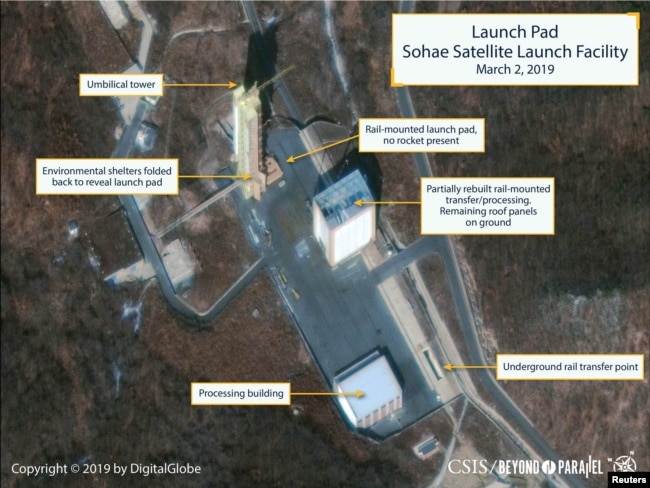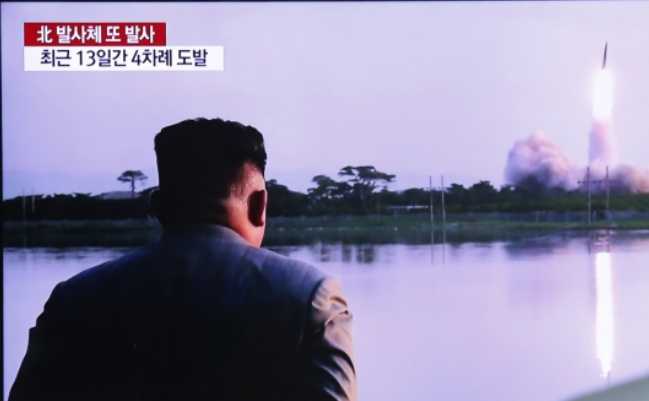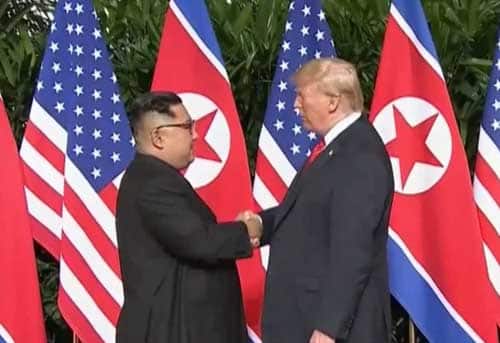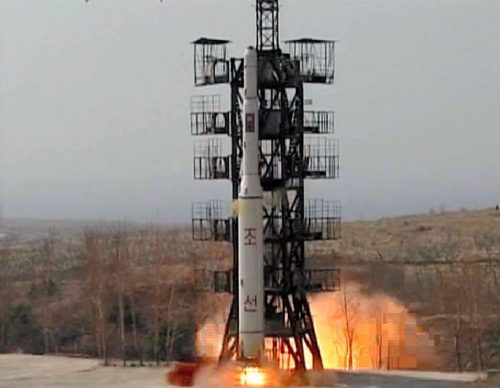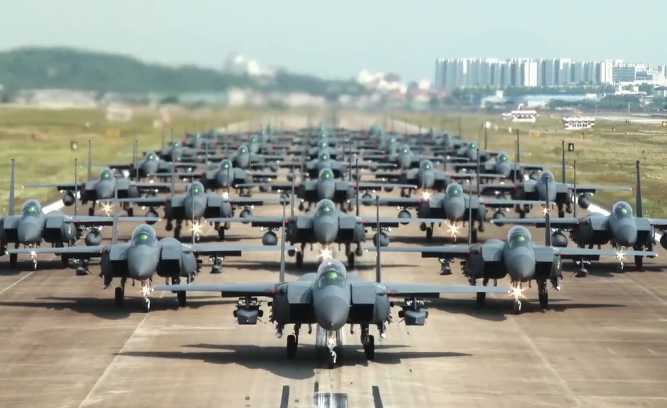[dropcap][/dropcap]SEOUL — Multiple sources have reported that North Korea has restored part of a missile launch site it had begun to dismantle after pledging to do so at the Singapore summit with U.S. President Donald Trump last year.
38 North, a Washington-based North Korea project, says satellite images depicted structures on the launch pad at the Tongchang-ri launch site, also known as Sohae, had been rebuilt between February 16 and March 2.
Furthermore, South Korea’s Yonhap News said that the country’s National Intelligence Service (NIS) briefed lawmakers that the work was taking place and involved replacing a roof and a door at the facility.
The Center for Strategic and International Studies (CSIS) also concluded North Korea is “pursuing a rapid rebuilding.”
The CSIS report added, “Activity is evident at the vertical engine test stand and the launch pad’s rail-mounted rocket transfer structure.”
Following his first summit with North Korean leader Kim Jong Un in Singapore last year, President Trump told reporters at a press conference that the North Korean leader promised to destroy a major missile engine testing site.
The president didn’t identify the site at the time, but Reuters was later informed by a U.S. official the facility was located at Tongchang-ri.
Neither the U.S. State Department, the White House, nor South Korea’s Unification Ministry has commented on the report. South Korea’s presidential office, the Blue House, has not responded to multiple requests for comment.
In addition, International Atomic Energy Agency’s (IAEA) chief Yukiya Amano revealed in a quarterly report that North Korea’s Yongbyon uranium-enrichment facility remains active.
Amano also stated North Korea is continuing work on building an experimental light-water reactor at the facility.
It’s unclear what effect the news surrounding developments at Tongchang-ri and Yongbyon will have on diplomatic efforts with North Korea, but U.S. National Security Advisor John Bolton said Tuesday the United States would look at increasing sanctions against Pyongyang if Kim did not end its nuclear weapons program.
[content id=”79272″]
Speaking on the Fox Business Network, Bolton said Washington was waiting to see if Pyongyang was committed to abandoning its “nuclear weapons program and everything associated with it.”
“If they’re not willing to do it, then I think President Trump has been very clear … they’re not going to get relief from the crushing economic sanctions that have been imposed on them and we’ll look at ramping those sanctions up in fact,” Bolton said.
U.S. lawmakers, however, aren’t delaying in trying to ramp up sanctions on North Korea.
Tuesday, Republican Senator Pat Toomey and Democrat Chris Van Hollen introduced a bill to impose sanctions on any bank that does business with its government.
The measure had the added endorsement of the parents of Otto Warmbier, the U.S. college student who died after being imprisoned in the reclusive country as a result of the treatment he received during captivity.
Dubbed the “Otto Warmbier Banking Restrictions Involving North Korea (BRINK) Act,” Otto’s parents said they believed the legislation would provide helpful in eliciting change in North Korea.
“We continue to support the bill and appreciate them honoring our son’s memory,” the Warmbiers said.
The measure unanimously passed the Senate Banking Committee last year, but did not advance further.
To become law, the bill needs to pass both houses of the U.S. Congress and be signed into law by President Trump.
Resumption of talks
South Korean President Moon Jae-in has ordered his cabinet to pursue all avenues to facilitate a resumption of discussions between Washington and Pyongyang.
“We look forward to continuing the dialogue between the two countries, and I expect that the two leaders will meet again in the near future and achieve the settlement this time,” Moon said earlier this week while presiding over a National Security Council meeting.
After the Hanoi summit resulted in no agreement being signed between President Trump and Kim, Moon said South Korea’s role has become important and directed ministers to take action.
Moon said he wanted officials to “confirm the differences in the positions of the two sides” and “look for ways to narrow the gap.”
“I believe that the North American dialogue will eventually be settled, and it’s very undesirable to have a vacuum and deadlocked stage for a long time, so please work hard together for the resumption of the North American dialogue,” Moon said.
He added, “I would like to find out the best ways to help North American dialogue through the development of inter-Korean relations within the framework of sanctions.”
Moon specifically identified projects agreed to during his summits with Kim, including the reopening of the Kaesong Industrial Complex and the resumption of tours to Mount Kumgang.
Speaking Tuesday at the commission ceremony of the Korean Naval Academy, Moon spoke optimistically of the future.
“Should we consistently pursue peace with firm determination, denuclearization of the Korean Peninsula and permanent peace will definitely come,” he said.
Steve Miller is a veteran broadcast journalist with over a decade of experience. Much of that time he covered the Asia-Pacific region while living in South Korea.
Source: VOA

